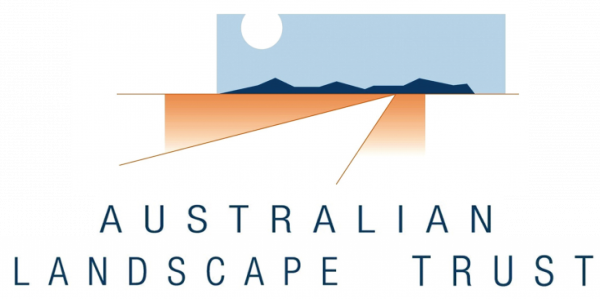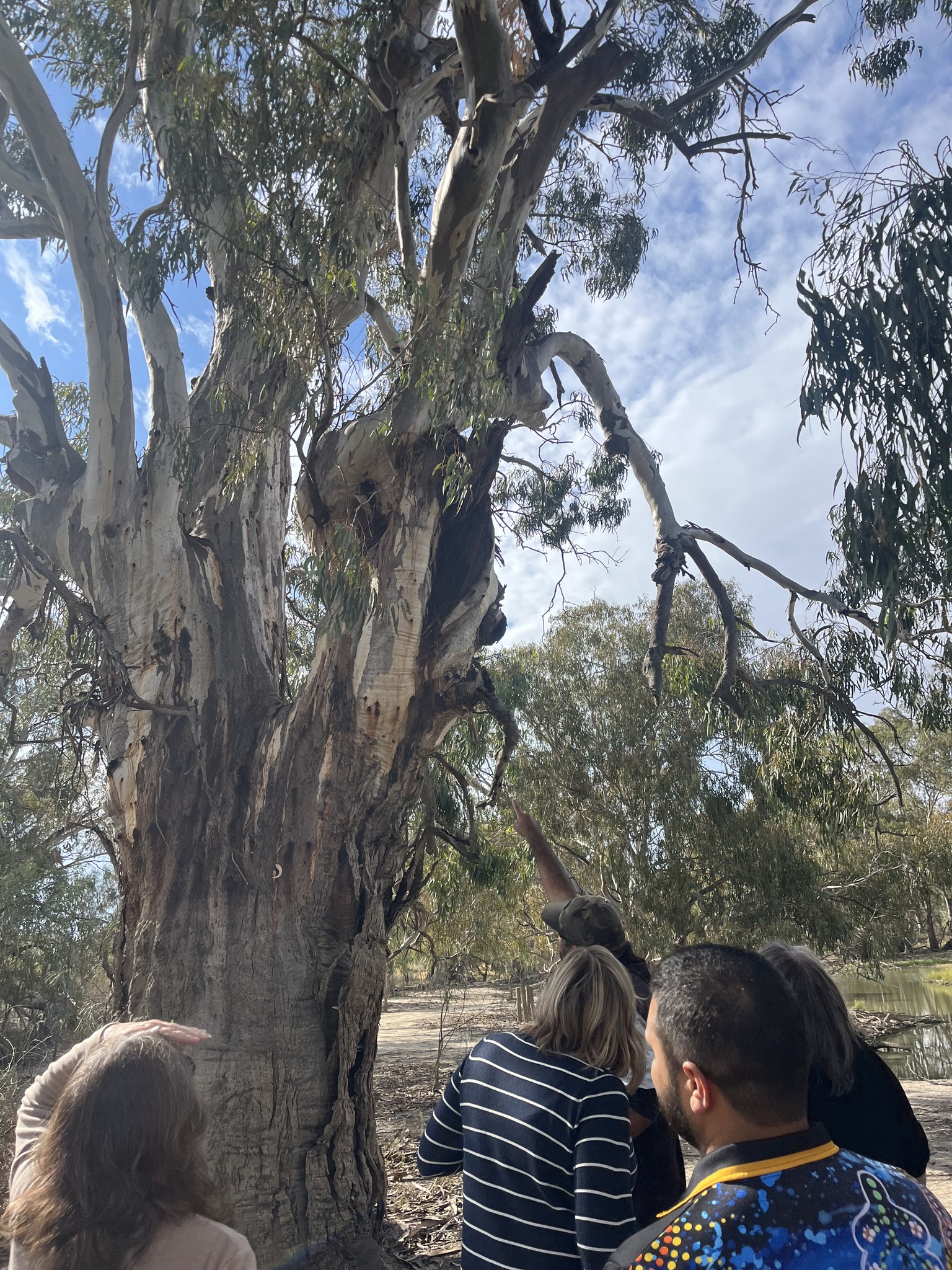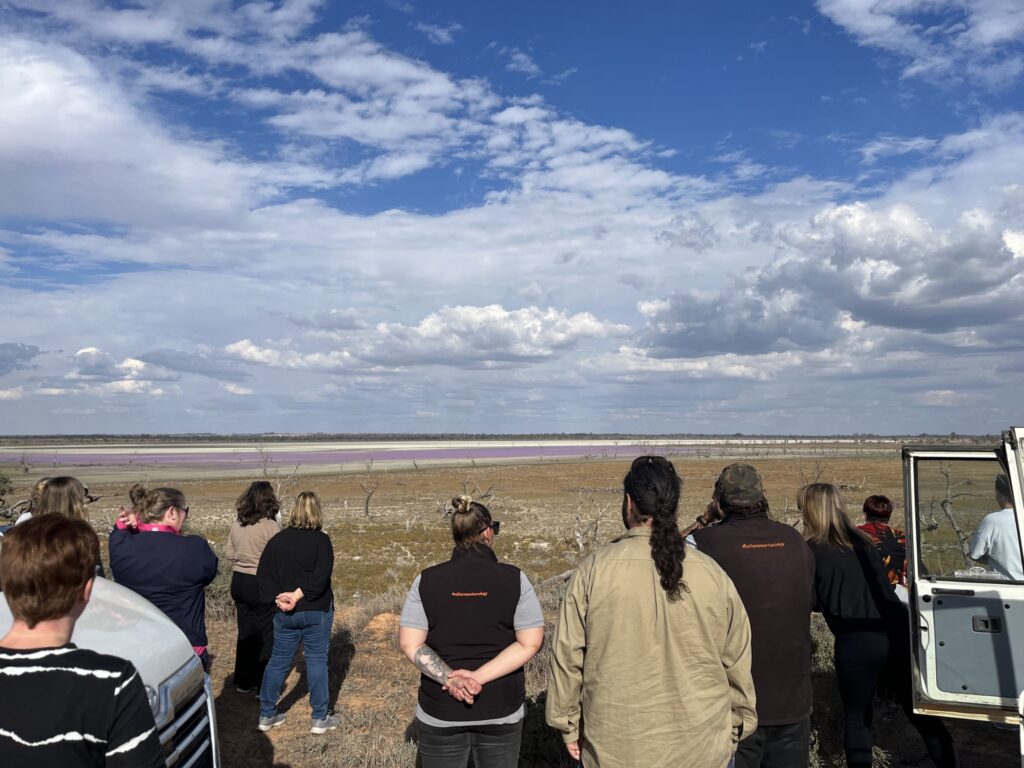Calperum Welcomes Deputy Premier Hon. Susan Close
During a recent tour of the Riverland region, Deputy Premier Hon Susan Close made a notable stop at Calperum, where she immersed herself in the

The Secretariat Team from the Riverland Mallee Coorong Local Health Network (RMCLHN) recently participated in a profound two-day Cultural Immersion Experience at Calperum Station. The visit offered a unique opportunity to connect with the land, its rich history, and its significance to Aboriginal people today.
Throughout the experience, the team was guided by rangers, including First Nations rangers Peter, Tara, and Dan, who shared stories and led tours across the station, floodplains, and wetlands. The group learned about the history and culture of the Aboriginal people who have long called this land home. Key highlights included the exploration of scar trees, which were traditionally used to make bowls and other items, and ring trees, which marked territorial boundaries.
The team also learned about the techniques used by Aboriginal people to craft baskets from reeds and the fascinating origins of the Mallee tree’s name, derived from the Aboriginal word for water—mali—as its roots contain fresh drinking water.


Ranger Dan shared the history of an ancient earth oven, over two meters deep, containing stones traded from the Flinders Ranges, showcasing the exchange of resources between Aboriginal groups.
The immersion also offered a closer look at Calperum’s unique native flora and fauna, as well as the environmental challenges posed by introduced species. The team learned about the elusive moth responsible for defoliating Mallee trees, invasive plants like Golden Dodder and Bathurst Burr, and the damaging effects of wild pigs, goats, foxes, and cats on endangered species such as the Mallee Fowl. A birdwatching tour provided a special moment, with the rare sighting of three Wedge-tailed Eagles flying together, along with encounters with kangaroos, emus, and various bird species.
Local Aboriginal artist Daniel Giles and RMCLHN’s Director of Aboriginal Health, Sharon Wingard, also met with the Secretariat team to discuss the importance and significance of Aboriginal culture and Country.
Each member of the Secretariat expressed a deep sense of privilege in being part of this experience, walking away with a richer understanding of Aboriginal culture and the importance of Country.
Tracey Chapman, Executive Assistant to the CEO, shared her enthusiasm for the overnight experience.


“Touring Calperum Station in 4WDs with the rangers to learn about the global and cultural significance of this ecosystem that’s right on our doorstep was a fantastic experience and a privilege to share with my colleagues.”
Senior Communications Advisor Susan Peterson echoed this sentiment, saying the immersion gave her a deeper understanding and appreciation of Aboriginal history in the region and a newfound knowledge of Calperum Station – including that it has three biospheres. “I live so close, and yet I had no idea this was right around the corner,” she said. “It’s so vital to me that all aspects of our work and our health services are culturally appropriate and respectful, and I felt so privileged to have this opportunity to learn and be on Country.”
Jeanette Brown, Director of Governance and Executive Services, reflected on her previous visits to Calperum Station. “It’s one of the few places where I find I can totally relax and enjoy being on Country,” she said. “This visit included more extensive touring of the vast property that covers more than 600,000 acres, and an opportunity to hear a lot more stories about Aboriginal culture and the amazing ecosystem.”
Jeanette also praised RMCLHN for supporting staff participation in cultural immersion opportunities. “I was proud to be able to share this experience with the Secretariat team, with the professional development being both individual and collective. I also want to acknowledge the support and encouragement that RMCLHN provides, enabling all staff to benefit from cultural immersion experiences.”
A special thank you to the Calperum Station team for their warm and outstanding hospitality, and a shout-out for the delicious saltbush damper and quandong jam!
During a recent tour of the Riverland region, Deputy Premier Hon Susan Close made a notable stop at Calperum, where she immersed herself in the
Scientists from around the world recently visited Calperum Station to collaborate on a crucial calibration and validation program for Earth observation. Watch the video to
We are excited to announce that Dr. Heather Neilly, our Senior Ecologist, has just received an Australian Research Council Industry Fellowship worth $453,000 to continue
Calperum ecologist Dr Heather Neilly has been awarded the Wiley Next Generation Award by the Ecological Society of Australia. Dr Neilly’s research at Calperum has
© Australian Landscape Trust | 2024